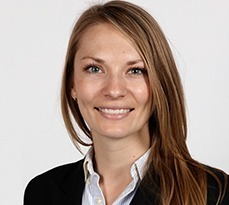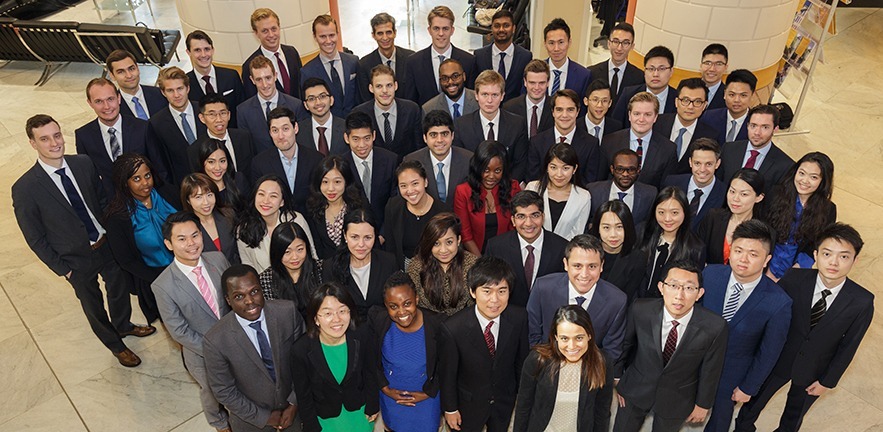The most recent Cambridge Master of Finance (MFin) graduates report high levels of post-graduation employment and career development for a third year running.
The financial job sector continues to develop and become even more competitive amidst development of current and ongoing economic trends.
The latest career outcomes report for the Cambridge Master of Finance programme shows the continuing high number of MFin graduates who have gone on to secure employment across the financial spectrum in countries across the globe.
It was a few key soundbites of advice from the Programme Directors and key lecturers that will have a lasting impact on my career. Access to their thought leadership was the ultimate reason for attending.
Jesica Andrews (MFin 2017)
The career outcomes report for the MFin class of 2017/18 demonstrates the high number of graduates that secured employment from across the financial spectrum spanning a variety of geographies.
According to the report, 93 per cent of graduates went on to secure employment and further study three months after completing the programme. Of those who secured employment and further study, 77 per cent of graduates joined a new employer.
This year’s survey found that 51 per cent of MFin graduates in the class switched their area of expertise and 44 per cent relocated for a new position. Whilst 20 per cent had both switched industry area and relocated for a new job.

Dr Pedro Saffi, Director of the Cambridge Master of Finance programme said:
“We are extremely pleased to see excellent results in the career outcomes report for the 2017 cohort. This yet again demonstrates the excellence that can be achieved by the outstanding academic training and networking opportunities provided by the Cambridge Master of Finance programme to support career development.”
The report surveyed the 2017 class of 59 students from 29 different nationalities with an average number of years’ work experience spanning around four years.
Analysis of the 2017 class has also revealed that the largest number of graduates ventured into investment banking (22 per cent), private equity/venture capital (15 per cent) and financial consulting (13 per cent). The nature of roles chosen by MFin graduates across the various sub-sectors of finance were equally varied with several graduates going into advisory-focussed roles (15 per cent) as well as consultancy (nine per cent) and corporate planning (nine per cent).

One of the students who shifted geography and role focus was Jesica Andrews, originally from the United States. Jesica had previously worked for the United Nations Environment Programme (UNEP) in Nairobi, Kenya with Ministries of Finance and Ministries of Environment across the developing world. Jesica, who now works as a Consultant for the UNEP Finance Initiative, said:
“Recognising the crucial role of the finance sector in responding to the unique challenge climate change presents, I went to the MFin to learn more about project finance. Instead of focusing on ‘green projects’ through the MFin programme, I saw the systems change I wanted to work towards was emerging – in a few small pockets – more rapidly than I could have hoped.
“I now work in Geneva, supporting initiatives with large asset owners across the globe to assess the interaction between climate change and their portfolios. It was a few key soundbites of advice from the Programme Directors and key lecturers that will have a lasting impact on my career. Access to their thought leadership was the ultimate reason for attending.”


